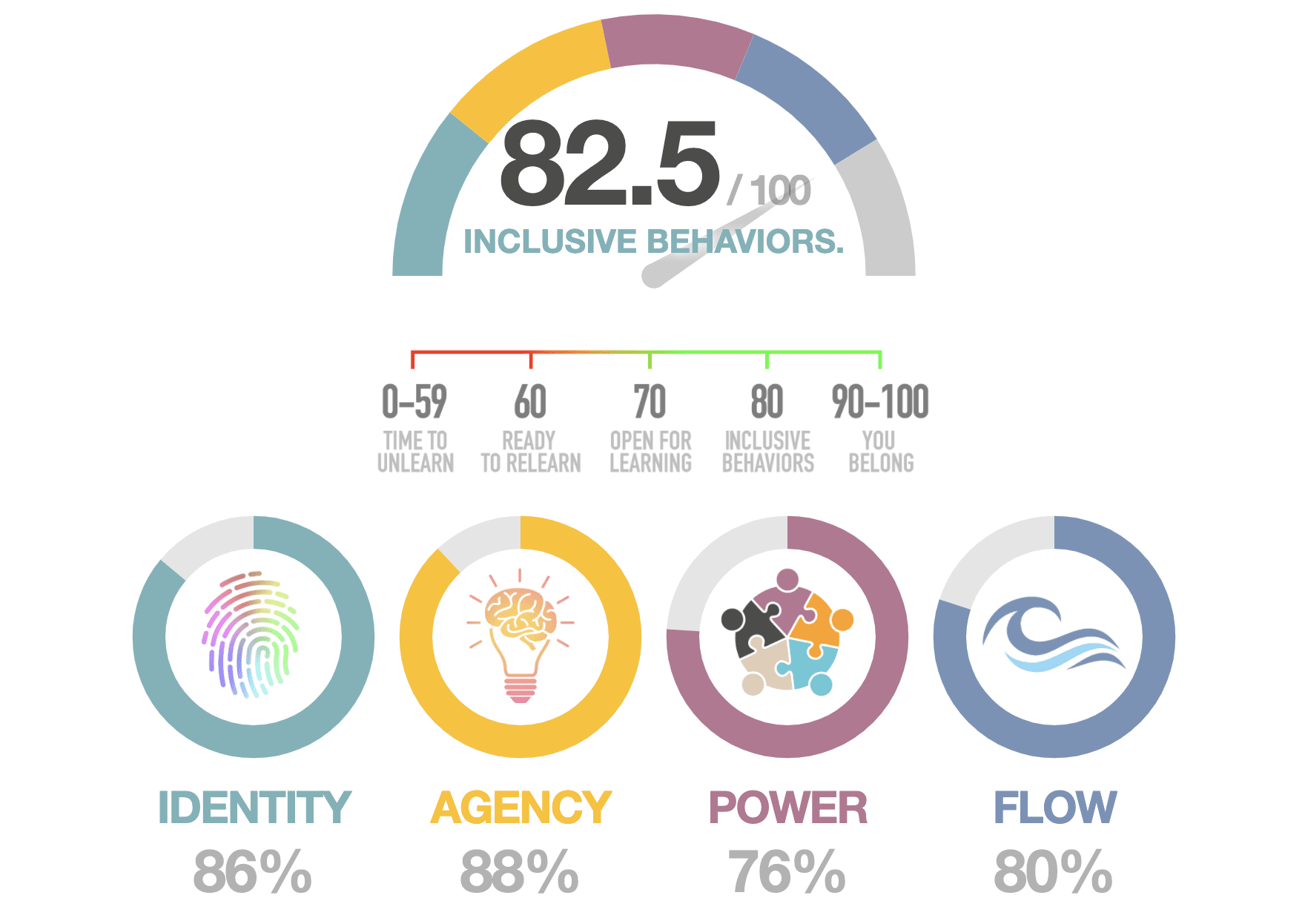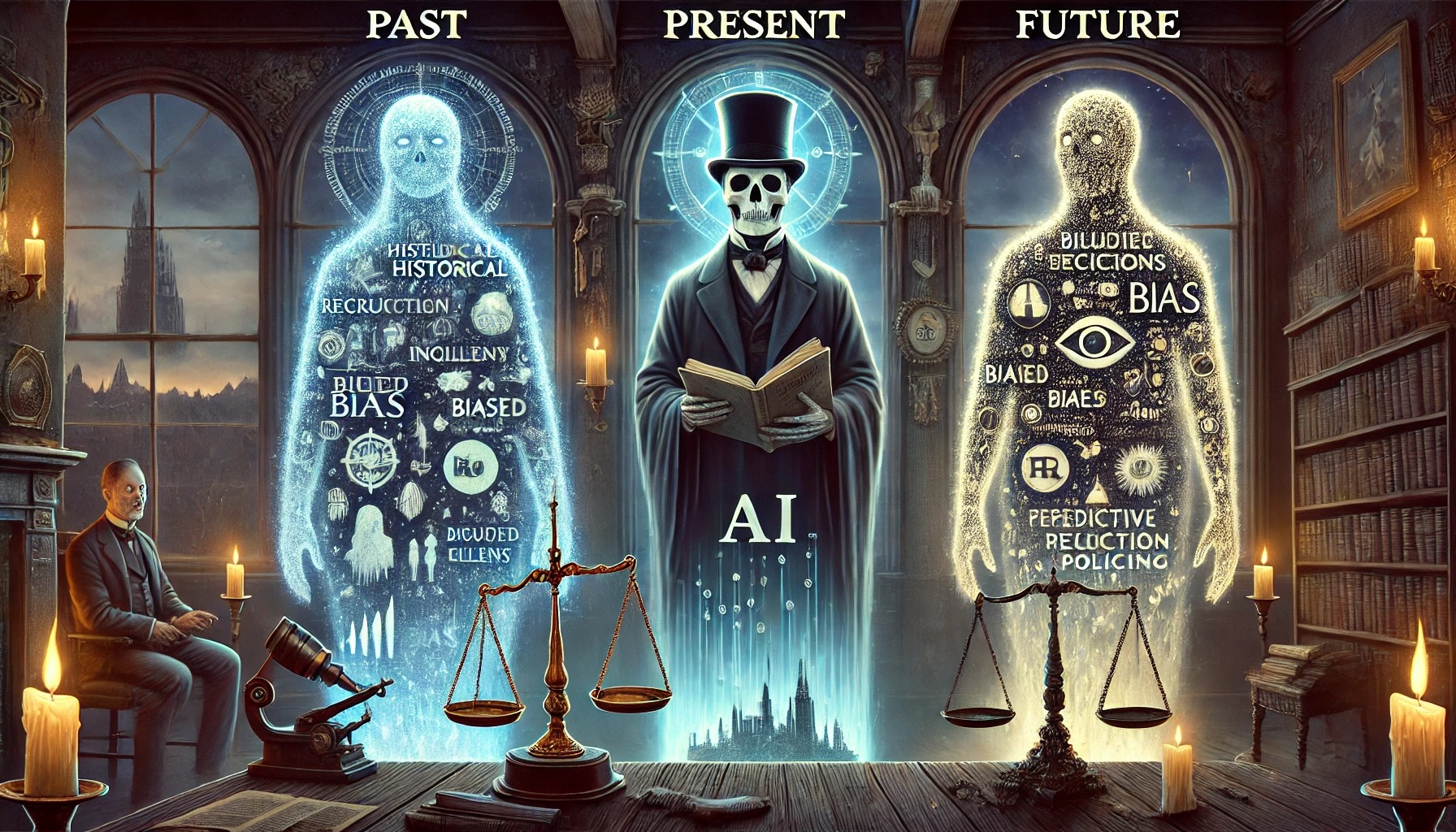
Today, leaders from nearly every industry and across the world are plagued by how to recruit, develop and retain talent effectively. In a 2021 global leadership forecast study by Development Dimensions International, a survey of 15,000 CEOs and 2,100 HR professionals from 1,700 organizations across 24 industries and 50 countries, 55% cited “developing the next generation of leaders” and “attracting and retaining talent” as their most significant challenges.
Over the next decade, Millennials and Gen Z will make up nearly 60% of the workforce. To effectively recruit and develop this next generation, leaders must first understand what they want from the workplace. A 2018 Gallop Poll found that Millennials and Gen Z place a high value on working for an organization that is “diverse and inclusive of all people.”
Organizational success means leaders must understand how to act on these emerging trends and build inclusive business cultures. Yet, most organizations still struggle to turn concepts of Diversity & Inclusion into actionable, measurable plans. One crucial step is to develop leaders with the skills and competencies to be inclusive.
Here are five essential traits of an inclusive leader:
1. An Inclusive Leader Recognizes the Dimensions of Diversity
One of the most critical steps a leader can take toward becoming more inclusive is redefining diversity and recognizing all of the layers that make a person whole. For example, some people may think of diversity as everything that is not a straight, white male. Others think of diversity as race or gender. Some think of sexual orientation. But diversity goes well beyond these singular aspects of a person’s identity; it represents all of the complex characteristics that make you, you.
Here are some simple but essential ways inclusive leaders recognize the dimensions of diversity and help move people (and companies) from bias to belonging™:
Ask Questions that seek to understand how employees feel about their sense of belonging in the workplace.
Listen Attentively. Show employees that you respect and value their unique contributions by listening actively. If someone is speaking, give them your full attention.
Practice Gratitude. Employees are more likely to feel a sense of belonging when appreciated. Staff members want to be recognized for their work, celebrated for their unique contributions, and told they’re valued team members.
Solicit Input in Meetings. To promote belonging, encourage self-moderation. Invite team members to consider and reflect on how much space they take up in a conversation. Recognize those who feel silenced.
Share Stories. Stories are powerful tools for drawing people in, promoting empathy, and building stronger communities. When we hear stories, we place ourselves in the storyteller’s shoes and feel closer to that person.
2. An Inclusive Leader Prioritizes Psychological Safety
Psychological safety in the workplace is “a shared belief held by members of a team that others on the team will not embarrass, reject, or punish you for speaking up.” According to Dr. Amy Edmondson, author of The Fearless Organization: Creating Psychological Safety in the Workplace for Learning, Innovation, and Growth, people must be allowed to voice half-finished thoughts, ask questions out of left field, and brainstorm out loud in order to create a culture that truly innovates.
Do your team members feel comfortable asking for feedback or help? Are they encouraged to challenge the status quo? Do they feel safe to try something new and fail? Are they rewarded for actions that require vulnerability? Setting clear expectations for the workplace and social interactions can help people accept a “safety first” mindset that places a high value on psychological safety and taking care of each other.
To help build psychological safety, leaders must know when to speak up and when to hold back. For example, in strategy-centric meetings, leaders should hold back in sharing their opinions so that they don’t bias the views of others. However, in meetings that require a higher degree of vulnerability, inclusive leaders should share their stories first.
3. An Inclusive Leader Builds Company Culture on a Foundation of Belonging
People show up authentically when (and where) they feel like they truly belong. A business culture centered around belonging has four fundamental cornerstones: Identity, Agency, Power & Flow.
Identity. Identity is the lens through which we view the world; it reflects how we see ourselves and perceive others as seeing us. We cannot shed our identity when we enter the workplace. As a result, our sense of identity influences how we work with others and how we view our role within the organization. For this reason, leaders need to create a space where employees can bring their whole sense of self (their identity) to work. One essential step is to ensure that employees feel safe to discuss how their identities impact their work and relationships with their colleagues, clients, boss, and even the company policies.
Agency. Agency is a vital part of the human need for free will. In the workplace, Agency is someone’s comfort and confidence when expressing ideas in various contexts. When employees feel a strong sense of agency at work, they feel control over their actions and consequences. As a result, they are more innovative, self-directed, and proactive.
Power. Power dynamics determine how your teams work together and ultimately impact your company’s ability to reach its collective goals. Leaders who hold power within your company must know when and how to use it, when to lead and when to hold back. Inclusive leaders use their positions of power to improve transparency, trust, and respect throughout the organization.
Flow. In the workplace, flow is the transformative state of work that is intrinsically rewarding. Flow happens when employees take on meaningful work that is important and challenges their skillsets. When your employees are in a flow state, they have a strong sense of personal control (agency) over the situation or activity and experience the work as deeply rewarding. Inclusive leaders create flow by aligning people with their passions and removing obstacles to top performance. When your teams are in a strong flow state, your business grows and thrives.

Building a culture of belonging is not elusive. The results come when leaders commit to making real, measurable progress in this space.
4. Inclusive Leaders Use Empathy
For most of modern civilization, we have operated on the assumption that humans are rational, logical creatures. However, what recent advances in psychology, neuroscience, and behavioral economics demonstrate is that we are a far more emotional species. Knowing this, it is imperative that leaders develop and use empathy to connect with and understand those that they are leading.
Empathy requires you to consider another’s perspective as if it were your own, setting aside your opinions and imagining yourself in another’s place so that you can better understand their situation, feelings, and motives. Inclusive leaders pay close attention to the needs of people and proactively look for ways to remove barriers. They pick up on various subtle cues and easily imagine how it might feel to be in their place. Leading with empathy requires proactive listening, being present (and unplugging), curiosity (asking questions), putting yourself in someone else’s shoes, and relating to feelings, not events. By exercising empathy, inclusive leaders create an environment that promotes open communication, increases productivity, cultivates trust, and boosts morale.
5. An Inclusive Leader Has High Emotional Intelligence (EI)
Every human being experiences emotions. For leaders, high degrees of stress, overwhelm, worry, and aggravation often comes with the job. When leaders give in to these emotions, they can jump to incorrect conclusions, missing out on crucial information and opportunities. Leaders with high emotional intelligence (EI) are aware of both their emotions and the emotions of others. And—with that understanding—they manage their reactions and create positive interactions in and outside of their company.
Part of developing a high EI involves practicing self-awareness and self-regulation. A self-aware and regulated leader can tune in to their state of emotions, knows their triggers, pauses before responding to an emotionally charged situation, and practices self-care to remain physically, emotionally, and psychologically healthy. Ultimately, high EI coupled with strong self-awareness and self-regulation allows leaders to make good decisions and drive the best outcomes for their organizations and teams while fostering a culture of belonging.
While there are many ways to be an effective leader, one thing is for sure: Leaders of today must be able to build an inclusive culture that fosters a sense of belonging. Leaders who recognize the dimensions of diversity, cultivate psychological safety, build a culture on a foundation of belonging, display empathy, and exhibit high emotional intelligence will develop their talent and strengthen their company’s long-term success.

Percipio Company is led by Matthew Cahill. His deep expertise in cognitive, social, and workplace biases is rooted in the belief that if you have a brain, you have bias®. He works with executives to reduce mental mistakes, strengthen workplace relationships & disrupt existing bias within current HR processes, meeting protocols and corporate policies. Matthew has demonstrated success with large clients like LinkedIn, Salesforce and dozens of small to mid-size companies looking to create more inclusive workplaces, work smarter, generate more revenue and move from bias to belonging®.





